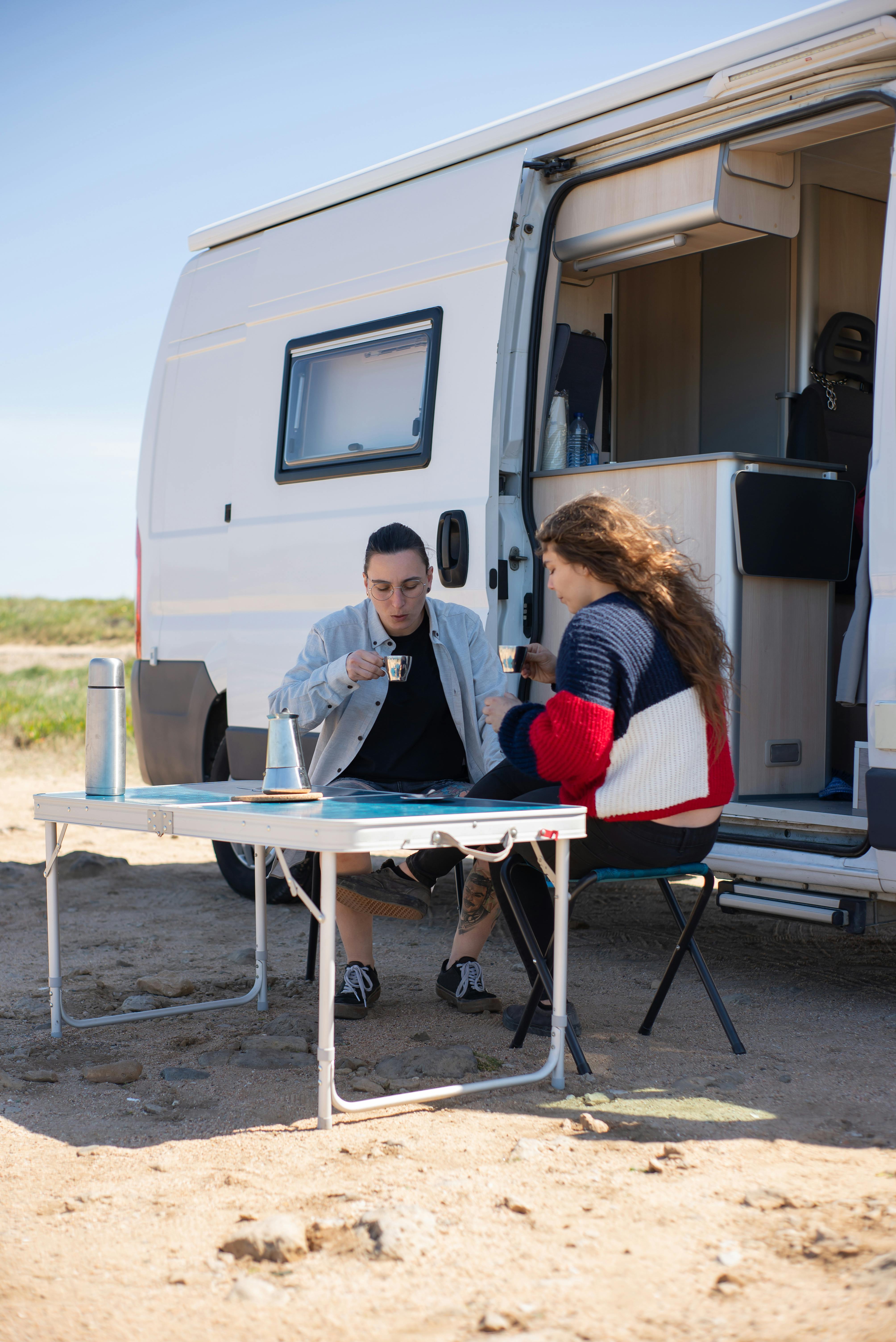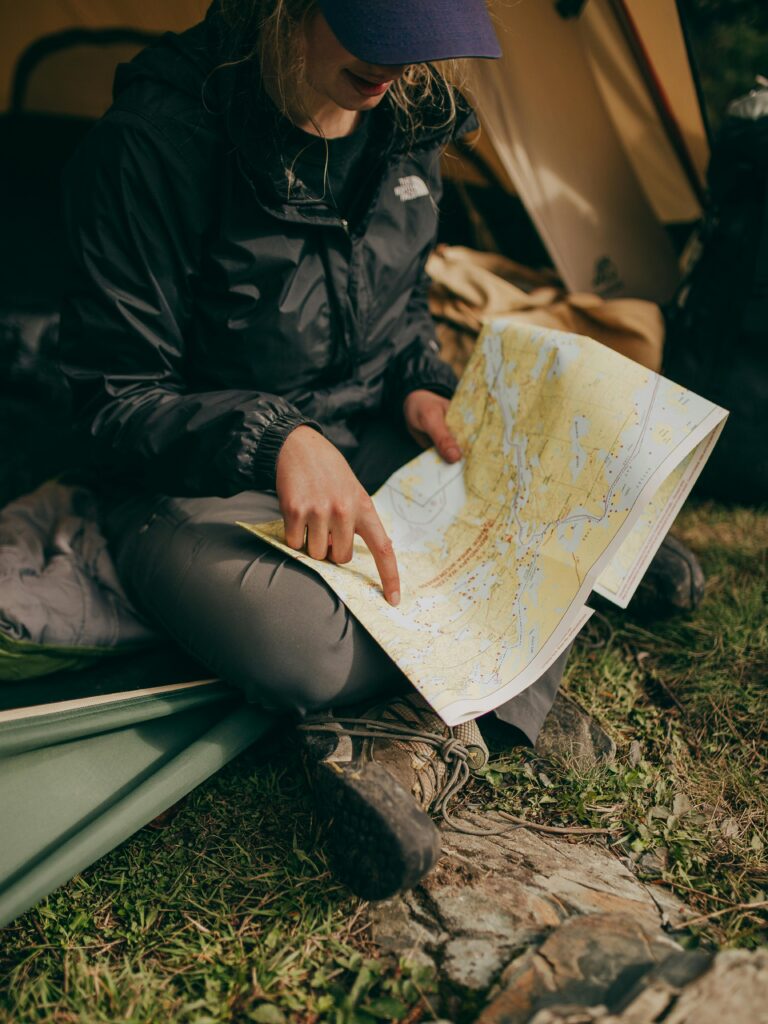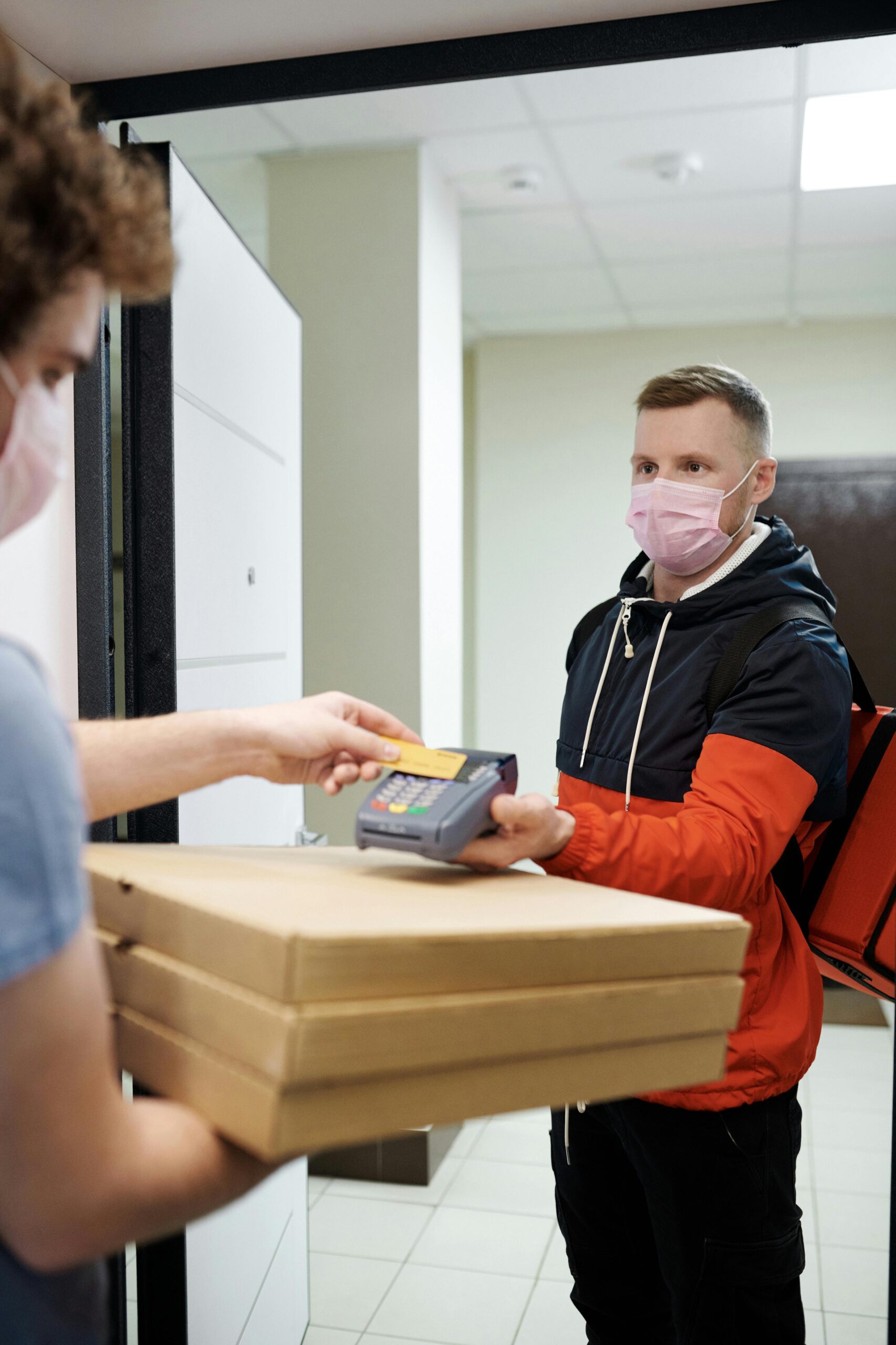How Much Does It Really Cost to Live the Van Life?: Breakdown of Van Life Costs (2024)
Have you ever dreamed of trading in your 9-to-5 routine for a life of adventure on the open road? Van life is a tantalizing prospect for many, offering the promise of freedom, simplicity, and a closer connection to nature. But before you hit the road, you might be wondering: how much does it really cost to live the van life? In this comprehensive guide, we’ll break down the various expenses associated with van living, so you can plan your adventure with confidence.
The Initial Investment
Purchasing the Van
The first major expense in your van life journey is, of course, the van itself. Prices can vary widely depending on the type, age, and condition of the vehicle. Here are some options to consider:
- Used Vans: A reliable used van can range from $5,000 to $20,000. Look for models like the Ford Transit, Mercedes Sprinter, or Dodge ProMaster.
- New Vans: If you prefer a brand-new vehicle, expect to pay between $30,000 and $60,000.
- Campervans and RVs: Pre-converted campervans or small RVs can cost anywhere from $15,000 to $100,000 or more, depending on the features and amenities.
Conversion Costs
If you buy an empty van, you’ll need to convert it into a livable space. Conversion costs can vary greatly depending on your needs and skills:
- DIY Conversion: Doing it yourself can save money, with costs typically ranging from $2,000 to $10,000 for materials and tools.
- Professional Conversion: Hiring a professional can cost between $10,000 and $50,000 or more, depending on the complexity and quality of the build.

Essential Equipment
Your van will need to be equipped with essential items to make it livable:
- Bed and Bedding: Expect to spend $200 to $1,000.
- Kitchen Setup: A basic kitchen setup, including a stove, refrigerator, and sink, can cost between $500 and $2,000.
- Bathroom Setup: Portable toilets and shower setups can range from $100 to $500.
- Solar Panels and Batteries: Solar power systems can cost between $500 and $3,000, depending on your energy needs.
Ongoing Monthly Expenses
Fuel
Fuel costs will be one of your largest ongoing expenses. The amount you spend on fuel will depend on your travel frequency and distance:
- Average Fuel Costs: Budget around $100 to $500 per month for fuel, depending on your travel habits and the fuel efficiency of your van.
Insurance
Insurance is a must for van life. Make sure you have comprehensive coverage that includes both your vehicle and its contents:
- Monthly Insurance Premiums: Expect to pay between $50 and $200 per month, depending on your coverage and driving history.
Maintenance and Repairs
Regular maintenance and unexpected repairs are inevitable parts of van life:
- Routine Maintenance: Budget around $50 to $100 per month for oil changes, tire rotations, and other routine services.
- Repairs: Set aside an emergency fund of $1,000 to $2,000 for unexpected repairs.
Campsite Fees
While boondocking (free camping on public land) can save money, you may sometimes need to pay for campsites or RV parks:
- Campsite Fees: Budget $0 to $300 per month, depending on how often you stay in paid campsites.

Groceries and Dining Out
Your food budget will vary based on your eating habits and cooking facilities:
- Groceries: Plan to spend $200 to $400 per month on groceries.
- Dining Out: If you enjoy eating out, budget an additional $50 to $150 per month.
Internet and Phone
Staying connected is essential for most van lifers, especially those who work remotely:
- Mobile Data Plans: Budget $50 to $150 per month for a robust mobile data plan.
- Wi-Fi Hotspots: Consider investing in a Wi-Fi hotspot device for reliable internet access on the road.
Entertainment and Activities
Van life offers endless opportunities for outdoor adventures and exploring new places:
- Outdoor Gear: Budget $50 to $100 per month for gear and equipment.
- Activities: Plan to spend $50 to $200 per month on activities like park entrance fees, tours, and local experiences.
Health Insurance
Maintaining health insurance is crucial while living on the road:
- Monthly Premiums: Expect to pay $200 to $500 per month, depending on your coverage and location.
One-Time Purchases
Safety and Security
Investing in safety and security measures will give you peace of mind:
- Security System: Install a van security system for around $100 to $500.
- Personal Safety Items: Budget $50 to $100 for items like pepper spray and personal alarms.
Comfort and Convenience
Certain purchases can greatly enhance your comfort and convenience on the road:
- Portable Heater or Fan: Depending on the climate, you may need a portable heater or fan, costing between $50 and $200.
- Outdoor Furniture: Invest in portable chairs and tables for around $50 to $200.
Miscellaneous Expenses
Don’t forget to budget for miscellaneous items that make van life easier:
- Laundry: Plan to spend $10 to $30 per month on laundry facilities.
- Memberships: Consider memberships to organizations like Harvest Hosts or Good Sam for discounts on camping and services.
Saving Money on the Road
Budget-Friendly Travel
Maximize your savings by traveling smartly:
- Slow Travel: Reduce fuel costs by traveling slowly and spending more time in each location.
- Off-Season Travel: Travel during off-peak times to avoid high campsite fees and crowded locations.
Free Camping and Boondocking
Take advantage of free camping opportunities:
- Public Lands: Utilize national forests, BLM land, and other public lands for free camping.
- Apps and Websites: Use apps like Campendium and iOverlander to find free camping spots.
Cooking at Home
Save money by preparing your own meals:
- Meal Planning: Plan meals in advance to minimize waste and maximize savings.
- Bulk Shopping: Buy non-perishable items in bulk to save money in the long run.
Finding Remote Work
Many van lifers fund their adventures through remote work:
- Freelancing: Consider freelancing in fields like writing, graphic design, or programming.
- Remote Jobs: Look for remote job opportunities that allow you to work from anywhere.
The Hidden Costs of Van Life
Emotional and Mental Health
Living in a van can be challenging for your emotional and mental health:
- Loneliness: Be prepared for periods of loneliness and isolation. Stay connected with friends and family through video calls and social media.
- Stress: Unexpected breakdowns or finding safe places to park can be stressful. Develop coping strategies to manage stress effectively.

Physical Health
Maintaining physical health is crucial on the road:
- Exercise: Make time for regular exercise to stay fit and healthy.
- Medical Care: Have a plan for accessing medical care when needed. Know the locations of clinics and hospitals along your route.
Wear and Tear
Living in a van full-time can take a toll on your vehicle:
- Depreciation: Be aware that your van will depreciate in value over time due to constant use.
- Interior Wear: The interior of your van will experience wear and tear. Budget for occasional repairs and replacements.
Is Van Life Worth the Cost?
The Freedom Factor
Despite the costs, the freedom and adventure of van life can be priceless. The ability to wake up to a new view every day and explore the world at your own pace is a unique and rewarding experience.
Building a Community
Van life can help you connect with like-minded individuals and build a supportive community. Attend van life meetups and join online forums to share experiences and make new friends.
Personal Growth
Living in a van can be a transformative experience. It teaches you to live with less, appreciate nature, and be resourceful in challenging situations.
Frequently Asked Questions about Van life Cost
How much money do you need to live out of a van?
Living out of a van can be a cost-effective and adventurous lifestyle, but it’s important to budget wisely. The amount of money you’ll need depends on various factors, including your van’s purchase and conversion costs, as well as ongoing expenses. On average, you might spend between $5,000 to $20,000 for a reliable used van, with additional conversion costs ranging from $2,000 to $10,000 for DIY builds, or $10,000 to $50,000 for professional conversions.
Monthly expenses include fuel ($100-$500), insurance ($50-$200), maintenance ($50-$100), campsite fees ($0-$300), groceries ($200-$400), and internet ($50-$150). Additionally, set aside funds for unexpected repairs and personal needs. To live comfortably, budget around $1,000 to $2,500 per month. Remember, frugal habits and smart planning can significantly reduce costs, making van life an affordable and fulfilling experience.
How much does it cost to convert a van to live in?
Converting a van to live in can vary greatly in cost, depending on your needs and preferences. On average, a DIY van conversion might cost between $5,000 to $15,000. This includes essentials like insulation, flooring, a bed, a small kitchen setup, and storage solutions. If you prefer a more luxurious or professional build, the cost can range from $20,000 to $50,000 or more.
Key expenses include insulation materials ($200-$500), electrical systems with solar panels ($1,000-$3,000), plumbing for water and waste ($500-$2,000), and furniture ($1,000-$3,000). Additional costs may arise from tools, labor, and unexpected modifications. Budgeting carefully and researching each component can help keep costs manageable. Whether you opt for a minimalist approach or a fully equipped tiny home on wheels, converting a van to live in offers the freedom and flexibility of van life on your terms.
Where do van lifers get money?
Van lifers fund their adventures through a variety of income sources, adapting their work to fit the mobile lifestyle. Many opt for remote jobs, leveraging skills in fields such as writing, graphic design, programming, and virtual assistance. Freelancing platforms like Upwork and Fiverr offer opportunities to find clients and projects.
Others monetize their van life journey by creating content. Blogging, YouTube channels, and Instagram accounts allow them to share their experiences and earn through sponsorships, ads, and affiliate marketing. Some van lifers work seasonal jobs, such as at national parks, festivals, or farms, providing income during certain months.
Additionally, a few manage online businesses, selling handmade crafts, digital products, or offering online courses.
How much is a realistic Van life budget?
A realistic van life budget can vary based on your lifestyle, travel habits, and personal preferences. On average, monthly expenses range from $1,000 to $2,500. Key costs include fuel ($100-$500), insurance ($50-$200), maintenance ($50-$100), campsite fees ($0-$300), groceries ($200-$400), and internet ($50-$150).
Initial costs, such as purchasing and converting the van, can range from $5,000 for a basic DIY setup to $50,000 or more for a professional build. Budgeting for unforeseen expenses like repairs and emergencies is also crucial. Living frugally, cooking your own meals, and finding free or low-cost camping spots can help manage expenses.
Is it cheaper to convert a van or buy one?
Deciding whether to convert a van or buy one depends on your budget, skills, and preferences. Converting a van yourself is generally cheaper, with costs ranging from $5,000 to $15,000 for a DIY project. This includes expenses for insulation, flooring, electrical systems, plumbing, and furniture. Doing it yourself allows for customization but requires time, tools, and expertise.
Buying a professionally converted van is more expensive, typically ranging from $30,000 to $100,000 or more, depending on features and quality. This option provides a ready-to-go solution with professional craftsmanship, saving you time and effort.
If you’re handy and enjoy building, a DIY conversion can be cost-effective and personalized. However, if you prefer convenience and professional quality, purchasing a pre-converted van may be worth the investment. Weigh your budget, skills, and time availability to choose the best option for your van life adventure.
Living the van life offers a unique blend of freedom, adventure, and simplicity, but it’s important to be realistic about the costs involved. From the initial investment in your van and conversion to the ongoing expenses of fuel, insurance, and maintenance, there are many factors to consider. However, with careful planning and budgeting, van life can be an affordable and rewarding lifestyle.
By understanding and preparing for these costs, you can embark on your van life journey with confidence. Whether you’re a weekend warrior or a full-time nomad, the experiences and memories you’ll gain on the road are truly priceless. So, pack your bags, hit the road, and embrace the adventure of van life!

